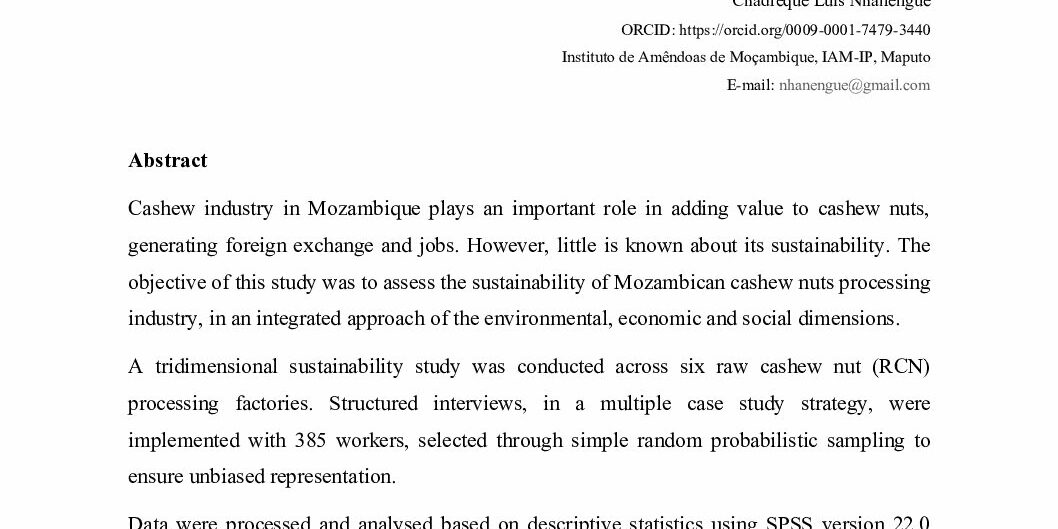Cashew industry in Mozambique plays an important role in adding value to cashew nuts, generating foreign exchange and jobs. However, little is known about its sustainability. The objective of this study was to assess the sustainability of Mozambican cashew nuts processing industry, in an integrated approach of the environmental, economic and social dimensions.
A tridimensional sustainability study was conducted across six raw cashew nut (RCN) processing factories. Structured interviews, in a multiple case study strategy, were implemented with 385 workers, selected through simple random probabilistic sampling to ensure unbiased representation.
Data were processed and analysed based on descriptive statistics using SPSS version 22.0 statistical package. Frequency distribution, average and median analysis was determined using Excel spread sheet and SPSS. Sustainability Grid was used to establish relative positioning of each company.
The results indicate that 69.9% of the workers in the cashew industry are women. The average age of workers in the cashew industry was 33.92 ± 9.08 years, ranging from 20 to 65 years and a median of 32.25 years. Workers reported varying levels of education background, ranging from literate with 0.5 percent to higher education with 3.1 percent, and most workers have attended secondary education in the interval of 8 to 10th grade, 32 percent attended.
The study revealed heterogeneity in sustainability practices among factories. For the environmental dimension, there were concerns on the management of the cashew nutshell. While in the economic dimension, irregular availability of cashew nuts, high interest rates and unpredictable prices of cashew kernel on the global market were reported. In the social dimension, job satisfaction was moderate, but concerns were raised due to lack of support to proceed with formal education. There are several external factors that impose vital challenges, including illegal foreign RCN buyers.
Although many similarities with cashew industries from other African countries, there is a need for integrated sustainability policies in cashew processing industry to ensure balanced progress across all three dimensions, specifically on improving the management of cashew nut shells, establishing competitive interest rates, supporting workers on formal training and reinforcing the cashew actors registration regulation to discourage illegal RCN buyers.


